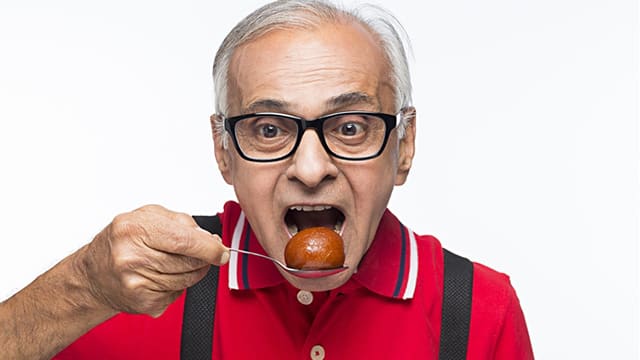-
-

TEETH WHITENING
What Is Stannous Fluoride Toothpaste?Stannous fluoride toothpaste helps prevent cavities, reduce sensitivity, fight plaque, and support daily gum and enamel health.

Selecting Dental Products
Best Toothpaste in India: Five Dentist-Recommended TypesToothpastes today are formulated to meet your every dental need and come in many flavours. Have your dental professional suggest the best toothpaste in India.
-
Science & Innovation
- ORAL HEALTH CHECK
- PRODUCT MATCH
- Colgate® | Toothpaste, Toothbrushes & Oral Care Resources
- Oral Health
- Diabetes & Other Endocrine Disorders
- Facts About Diabetes And Dry Mouth


Why do diabetes and dry mouth often occur in the same patients? Two of the main causes of dry mouth for people with diabetes are medication side effects and high blood sugar levels, according to the American Diabetes Association. Other causes, not directly related to diabetes but which can exacerbate the problem, are poor hydration, breathing through your mouth and smoking. Developing diabetic neuropathy can also cause dry mouth.
Oral Health Implications of Dry Mouth
Your mouth becomes dry when you don't produce enough saliva. In addition to its role in the food digestion process, saliva washes food particles and bacteria off of your teeth and neutralizes acids in your mouth, helping to prevent tooth decay and gum disease. Therefore, a lack of saliva increases your risk of cavities and gingivitis, according to the National Institute of Dental and Craniofacial Research. This condition can also lead to other problems, including salivary gland infections, mouth sores, yeast infections (oral thrush) and irritation around the corners of the mouth, along with additional issues for patients with dentures.
What You Can Do
The National Institute of Dental and Craniofacial Research and the American Diabetes Association also provide tips on what you can do to treat dry mouth. The first step is prevention. If medication is the problem, talk to your health care provider about options. To prevent high blood sugar from causing dry mouth, regularly monitor your blood glucose levels and keep them under control by eating right, exercising, taking medications as prescribed and following your health care provider's other instructions. Also avoid other contributors to dry mouth, such as smoking and breathing through your mouth.
Be sure to drink plenty of water, taking small sips of water throughout the day rather than drinking large amounts at one time. Other things that may help include eating more vegetables and fruits, which contain a lot of water, and avoiding foods and beverages high in salt or sugar, both of which have a drying effect. It may be best to avoid alcohol, caffeine and dry foods such as crackers or dry toast. Some sources recommend chewing sugar-free gum or sugar-free candy to stimulate saliva production.
If you've taken all these steps and still have dry mouth, you can buy artificial saliva in either spray or liquid form at drugstores. If necessary, ask your health care provider about prescription oral rinses or Salagen, a prescription drug that increases saliva production.
Oral Hygiene for Dry Mouth
Good oral hygiene is important for both preventing dry mouth and dealing with the problem if it occurs. Brush your teeth at least twice a day, preferably after every meal, and floss at least once a day. Although it's not required, you might consider using a toothpaste made for dry mouth. These toothpastes are available over-the-counter or by prescription so ask your dentist about options.
Only use mouthwashes, that don't contain alcohol or peroxide, as these substances may be drying. To further remove accumulated bacteria in your mouth, use a tongue scraper. For more help, talk with your dentist about your diabetes and dry mouth and address what the two of you can do to deal with the problem.
This article is intended to promote understanding of and knowledge about general oral health topics. It is not intended to be a substitute for professional advice, diagnosis or treatment. Always seek the advice of your dentist or other qualified healthcare provider with any questions you may have regarding a medical condition or treatment.
ORAL HEALTH QUIZ
What's behind your smile?
Take our Oral Health assessment to get the most from your oral care routine
2.3 billion
people worldwide suffer from tooth decay
ORAL HEALTH QUIZ
What's behind your smile?
Take our Oral Health assessment to get the most from your oral care routine
2.3 billion
people worldwide suffer from tooth decay
Related Products

Helping dental professionals
More professionals across the world trust Colgate. Find resources, products, and information to give your patients a healthier future










